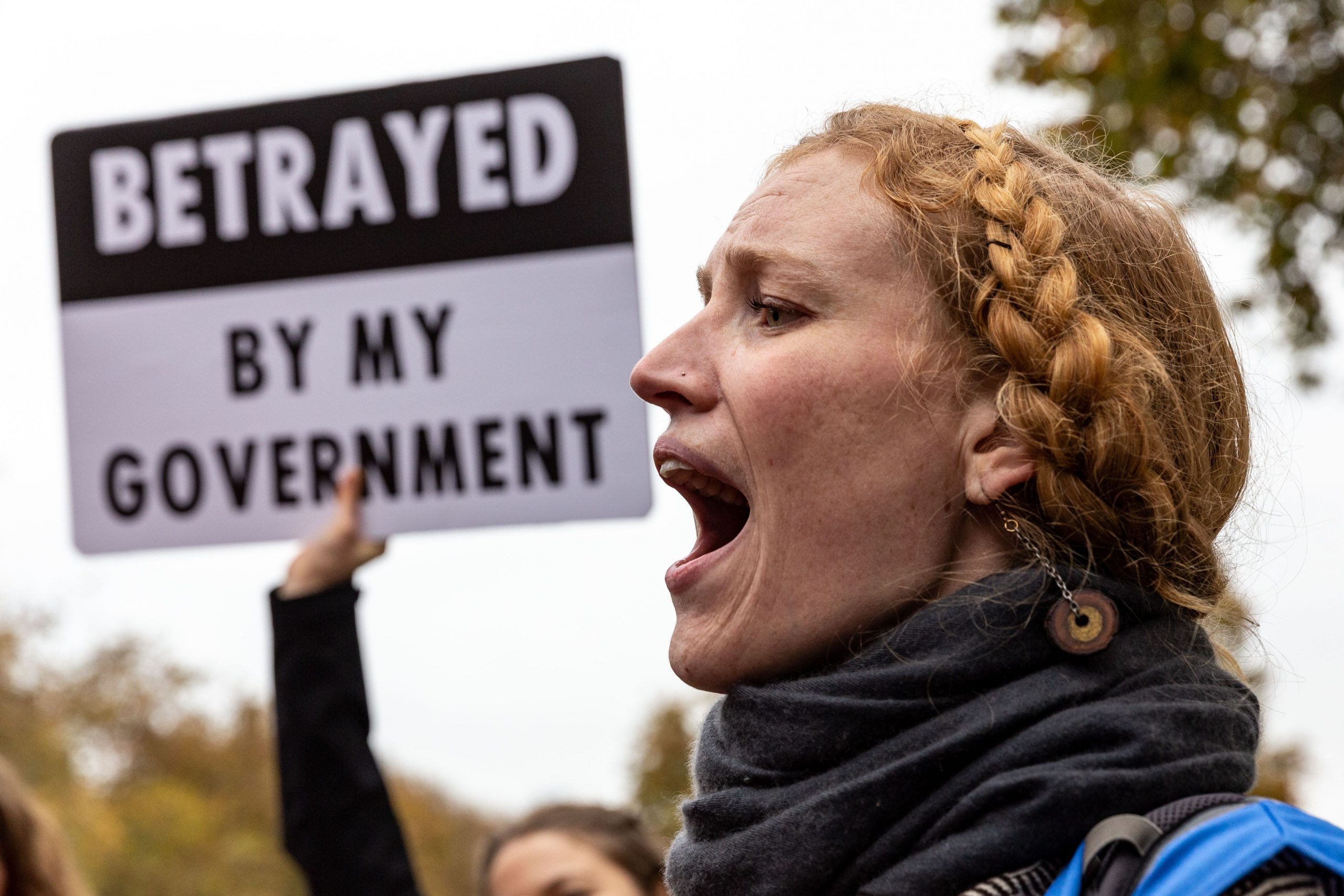The Metropolitan police have arrested hundreds of Insulate Britain protesters who have blocked roads and bridges recently. Some of these protesters have even been jailed for breaching injunctions to prevent road blockades.
What would push people to get arrested as a means of alerting the rest of us on climate change? Is it relevant? To try to understand their side of the story, I interviewed “armchair activist” David Kidd, course director on the MSc in Geographical Information Systems and Science programme – as well as two KU philosophy students who are climate activists.
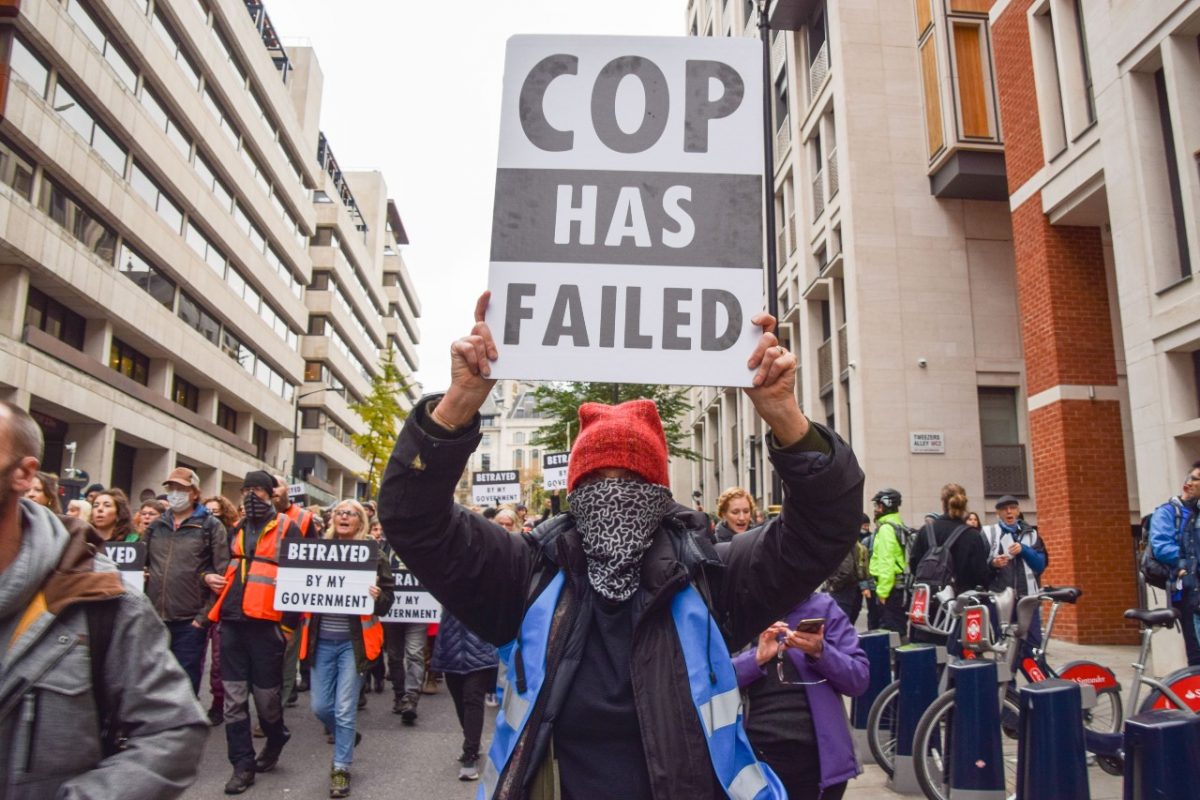
Credit: Vuk Valcic, SOPA. Shutterstock.
COP 26 was a failure
Why is there a need to protest to start with? The simple answer is the failure of traditional political institutions. This was illustrated by the watered down agreements and pledges at COP26 which most people believe do not go far enough to keep the global temperature rise within 1.5 degrees.
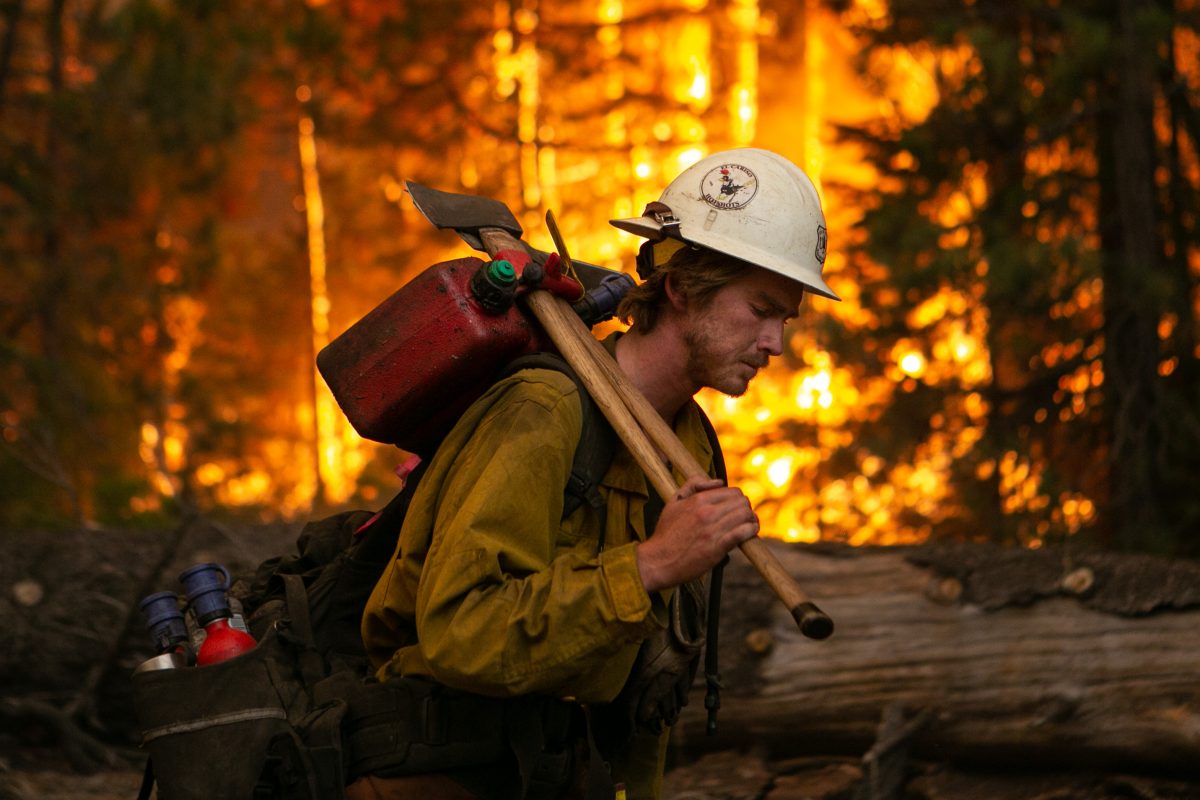
There is rising public concern about climate change – what could possibly be the cause of that? Big meetings like COP26? Or could it be because of an increase of climate related extreme weather events, like flooding?
“It definitely impacts the dynamic of climate opinion. People are realising that climate change is not a far-off problem, but that it is already here and now and is only going to get worse if we do not take any action immediately. Extreme events like droughts and fire, impact our archaic infrastructure which is not adapted to climate change,” said Kidd.
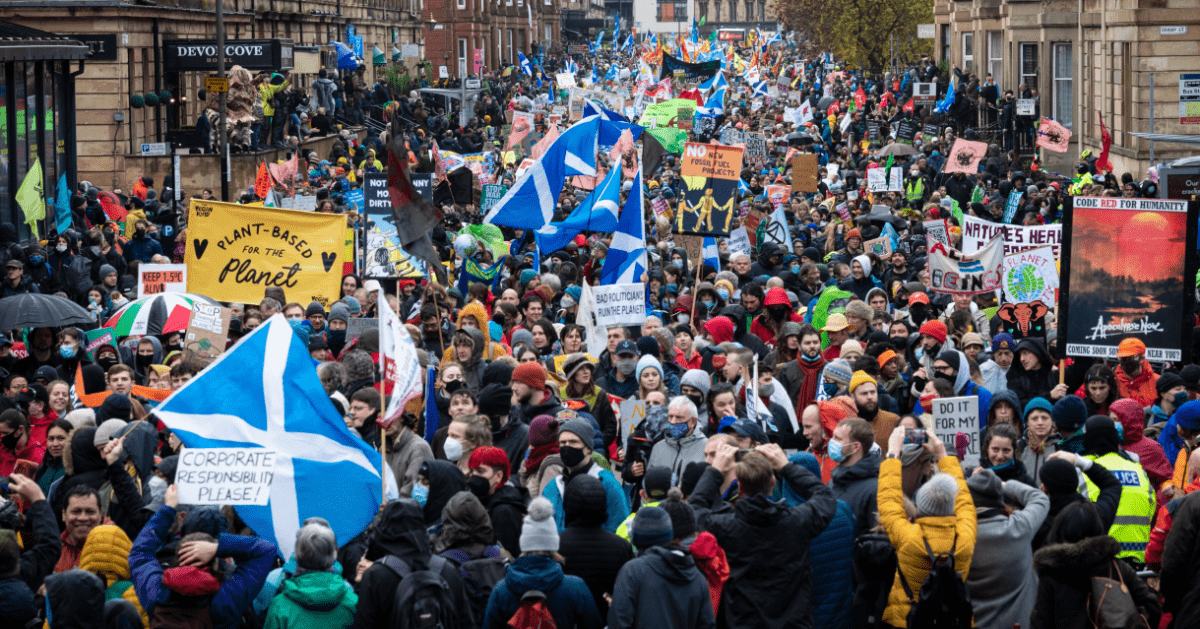
‘Protests are a lifeblood of democracy‘
“An active citizenry that is politically engaged is an important part of the separation of powers,” said a KU philosophy student who wished to remain anonymous. This means protests are of the same importance as the executive, the parliament, the judiciary or journalism.
“Protests show individuals that if they come together and aggregate their power they can influence policy”
“Protests also have an important transformative function. Power does not simply reside in the hands of the government,” said the philosophy student.
A KU philosophy graduate, who also wishes to remain anonymous, said: “We have got to be organised. We have got to move against powerful corporations. They’re only gonna react if we do something about it.”
“Protest is more about gradual pressure and keeping fixing the news”
David Kidd
On the same note, Heleen de Coninck, lead author of the International Panel on Climate Change (IPCC), a body aimed at producing solid climate science for
governments worldwide, told the Economist: “The pressure that activists place on business and political leaders is indispensable for climate actions.
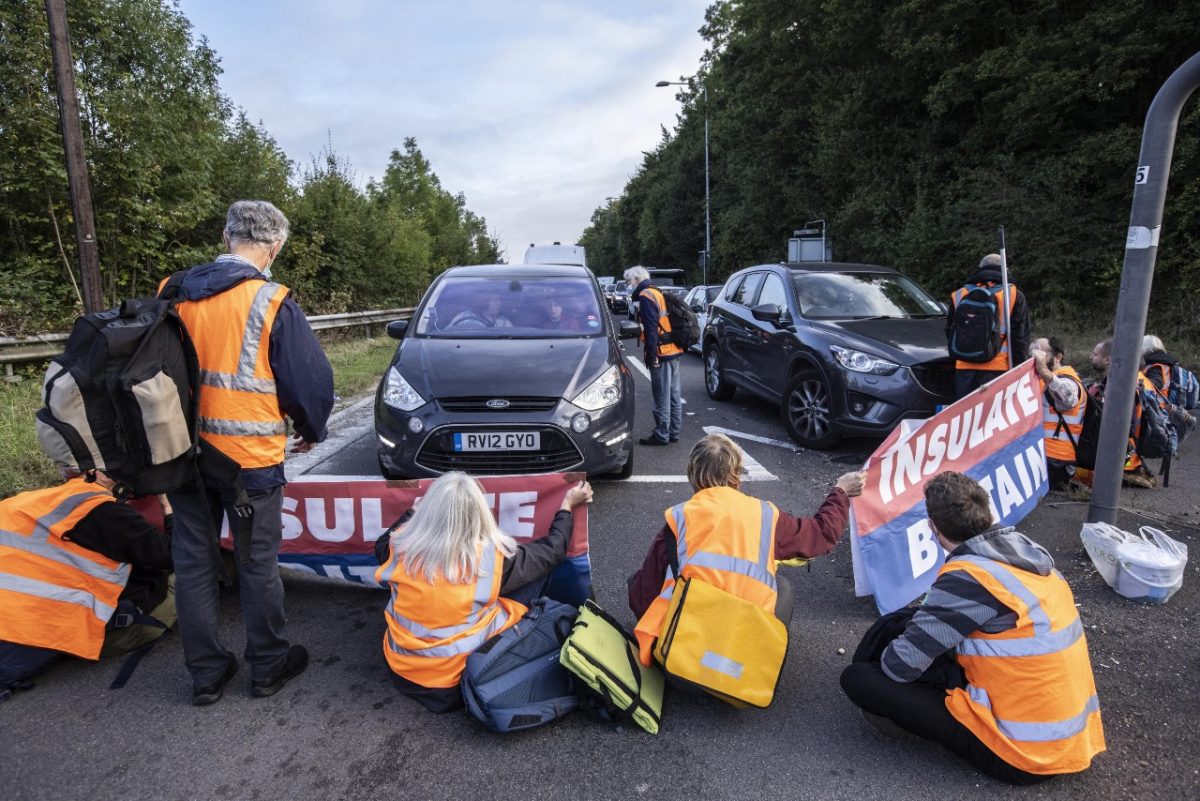
Credit: Jeff Gilbert. Shutterstock
Are climate activists methods appropriate?
“Climate protests are too soft in character given the severity of the crisis. Public opinion is massively in favour of taking large and transformative measures to develop a sustainable and resilient society. We need to demonstrate this commitment more boldly,” said the philosophy student.
“You have to disrupt. It is about choosing the right media moment when best to get everyone’s attention,” said the recent graduate.
“I think protests that engage in targeted disruption are important to indicate the willingness of citizens to support transformative social and economic policies that are able to tackle the severity of the climate crisis,” said the philosophy student.
“I think the targeting of fossil fuel infrastructure is a legitimate form of protest. I do not consider this a form of violence. It is not aimed at harming anyone”
“On the contrary, it is aimed at preventing the climate crisis that will inflict upon millions of people if we do not take any political action. I would draw a parallel with Nelson Mandela and the ANC targeting material infrastructure to exert political pressure on the government to end apartheid,” added the student.
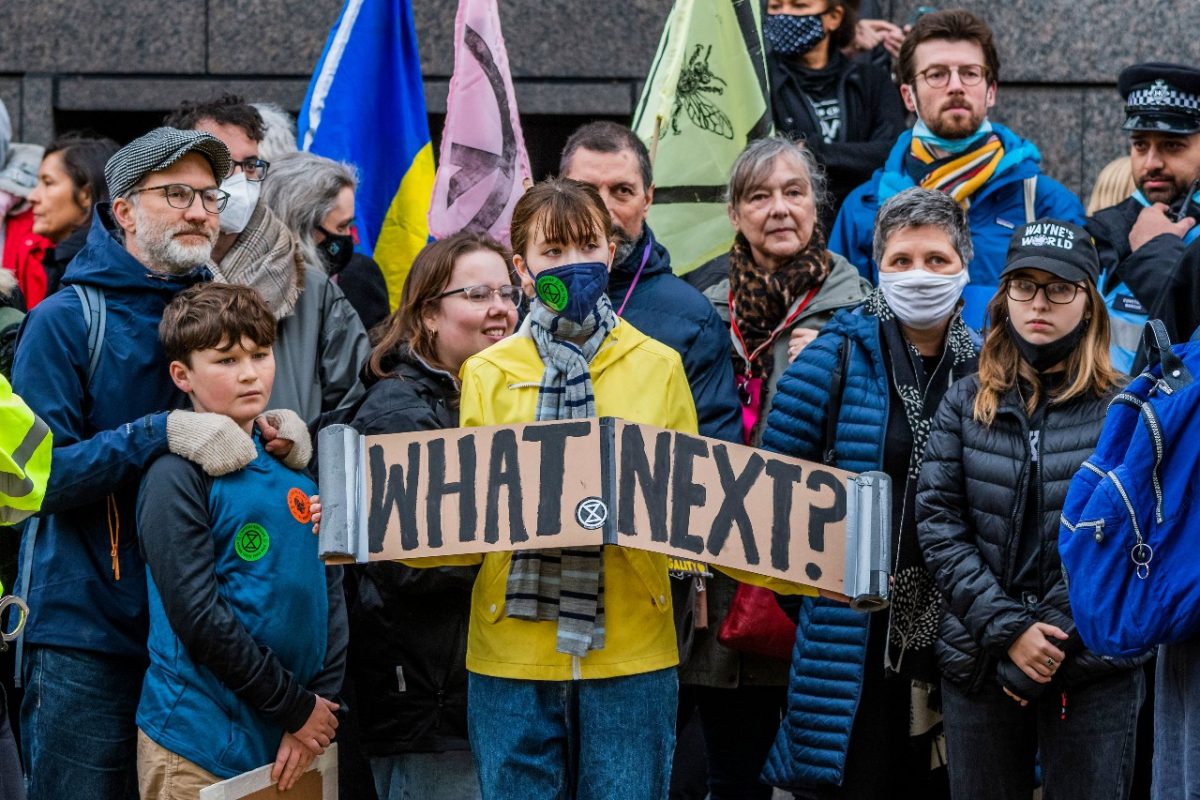
Credit: Guy Bell, Shutterstock.
Protest is community
Targeted action does not always have to be extreme.
“Guerrilla gardening in extra-suburban areas would also be good examples,” said Kidd. This practice refers to gardening on land that the gardeners do not have the legal rights to cultivate, such as abandoned sites, areas that are not being cared for, or private property.
Climate protests are also an occasion to meet people sharing the same values.
Some might argue it is part of the point of protests.
“Protest is about community and internal bonding, local community actions which participate in a necessary decentralisation,” said Kidd.
The philosophy graduate added: “It is good to see so many different groups at the same time and place, this gives a feeling of unity.”

